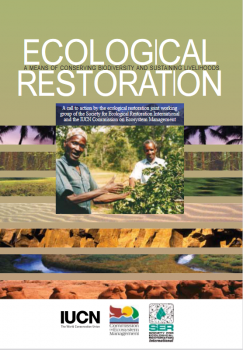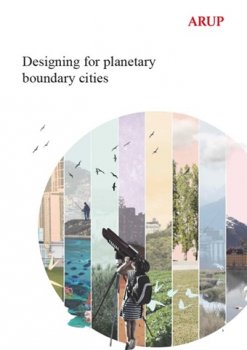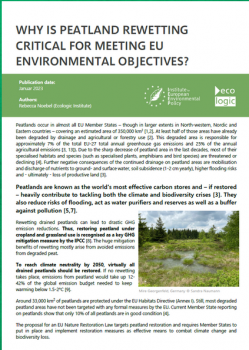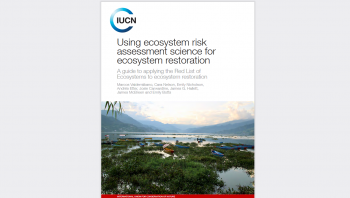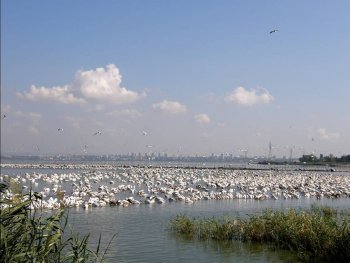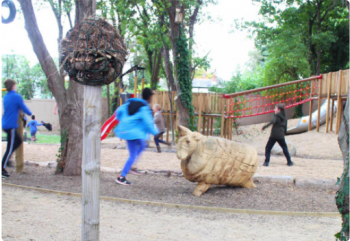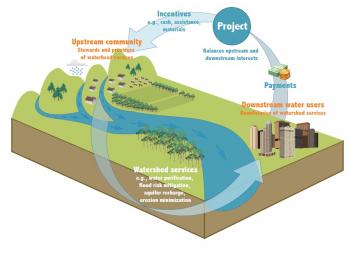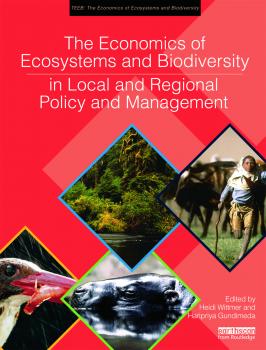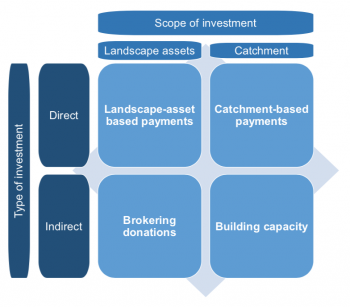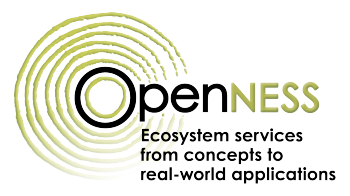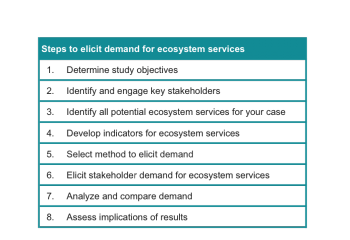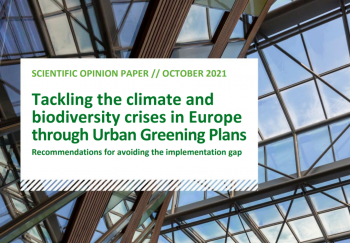Ecological Restoration – a means of conserving biodiversity and sustaining livelihoods
Many of the world’s ecosystems have undergone significant degradation with negative impacts on biological diversity and peoples’ livelihoods. There is now a growing realisation that we will not be able to conserve the earth’s biological diversity through the protection of critical areas alone. This
Designing for planetary boundary cities
The planetary boundaries signify the Earth’s capacity to tolerate change and set out the science-based limits that must not be surpassed if the Earth is to remain hospitable for future generations. This timely report explores how we can design the built environment within the ‘safety rails’
Why is Peatland Rewetting Critical for Meeting EU Environmental Objectives?
The EU Commission published its proposal for a new Nature Restoration Regulation in June 2022. In this context, Ecologic Institute and IEEP – as part of the Think Sustainable Europe network – published a series of thematic policy briefs to inform Members of the European Parliament and other
The case for mainstreaming nature-based solutions into integrated catchment management in Ireland
The intensification of European policies, agreements and regulations for climate action, water resources, energy, agriculture and forestry, and biodiversity is pressurising governments to adopt a wider portfolio of actionable solutions that are more financially and socially sustainable as well as
Using ecosystem risk assessment science for ecosystem restoration: A guide to applying the Red List of Ecosystems to ecosystem restoration
This guide was developed to promote the application of the science of ecosystem risk assessment, which involves measuring the risk of ecosystem collapse, in ecosystem restoration. It explores how the IUCN Red List of Ecosystems and ecosystem restoration can be jointly deployed to reduce risk of
NbS Financing in Fast Follower Cities
This report summarises 1) the progress and results of the fast follower cities (A Coruna (ES), Burgas (BR), Ioannina (GR), Malaga (ES), Nicosia (CY), Pavlos Melas (GR) and Sarajevo (BiH)) of the Connecting Nature project in securing funding for NbS implementation, and 2) the contribution of Open
The Health and Social Benefits of Nature and Biodiversity Protection
Protecting nature and biodiversity is helping to tackle urgent health and social challenges across Europe. This IEEP study shows how urban, suburban and rural green areas bring multiple and often overlooked benefits to society.
Providing contact with nature for young generation - A case study of preschools in the City of Poznań, Poland
Contact with nature is valuable for the health, wellbeing and development of children. Meanwhile, the urban environment and the contemporary urban lifestyle limit the opportunity for contact with nature. Given that children aged three to six years spend a significant amount of time in preschool, we
Payment for Ecosystem Services (PES)
Payment for Ecosystem Services (PES) programmes have been increasingly established across the globe in the last few years. PES is a type of market-based instrument that is increasingly used to finance nature conservation. PES programmes allow for the translation of the ecosystem services (ES) that
ZÖLD-KÉK INFRASTRUKTÚRA: Zöld-Kék Infrastruktúra (ZKI) tervezői workshop előadás anyagai (2023.06.06.)
2023.06.06-án került megrendezésre a Miniszterelnökség szervezésében a Zöld-kék Infrastruktúra (ZKI) workshop tervezők részére, melyen az alábbi előadások hangzottak el: - Beavatkozás típusok ismertetése, ősszel várható ZKI és klíma tárgyú felhívások, igényként kiemelve a természet-alapú (NbS) és
The Economics of Ecosystems and Biodiversity in Local and Regional Policy Management
In this volume of the TEEB (The Economics of Ecosystems and Biodiversity) publication series, the key concepts of the project are applied to local and regional policy and public management. The aim is to show that by taking nature's benefits into account, decision makers can promote local
Understanding the potential for private sector investment in natural capital – lessons from the Spey catchment, Scotland
There is a growing recognition amongst policy-makers, conservation NGOs and the private sector that funding for land management needs to be increased and diversified to protect and restore biodiversity and natural capital in Scotland. However, effective mechanisms for enabling private investment by
Defining and Assessing Success in Mainstreaming
This background paper draws on reviews of the mainstreaming targets and indicators of selected NBSAPs from countries at different stages of their mainstreaming process, and the approaches to assessing the success of mainstreaming biodiversity and other issues into development. Recommendations are
Aligning nature-based solutions with strategic priorities: a practical guide
Urban nature-based solutions have the potential to offer cities a range of opportunities to build climate resilience, improve people’s health and wellbeing, foster social cohesion, enhance biodiversity and develop nature-based enterprises that contribute positively to local economies, all while
Nature-based solutions for creating circular cities Course
This course provides knowledge on how to create such cities by using nature-based solutions (nbs). It comprises knowledge on resources flows and management of these flows in cities, appropriate nature- based solutions for managing resources, implementation aspects and number of worked examples to
Helping Ecosystems in Europe to adapt to climate change
This report summarises much of the work done by, and for, the Climate Change Group of the European Network of Heads of Nature Conservation Agencies (ENCA) between 2011 and 2013.
Eliciting Demand for Ecosystem Services: Results and User Guidance from the OPERAs Demand Synthesis Working Group
Based on experience in seven of the OPERAs Exemplar case studies, we summarize what the research team has learned about working with stakeholders to elicit demand for ecosystem services and put forth an eight-step framework for doing so. Each step of the framework includes examples from the OPERAs
Tackling the climate and biodiversity crises in Europe through Urban Greening Plans: Recommendations for avoiding the implementation gap
To systematically bring nature back to cities, the EU Biodiversity Strategy calls upon cities with over 20,000 inhabitants to develop Urban Greening Plans (UGP) by the end of 2021. UGP present a unique opportunity for the systematic integration of urban green infrastructures in urban planning
Anti-Corruption Guide for Payment for Ecosystem Services
Sustainable livelihood projects can create significant opportunities for illicit private gains, along with the power and enabling conditions to pursue those gains. In other words, these projects are subject to corruption risks that may partially or completely sabotage the project or, in the worse
What are nature-based solutions? Risks, concerns and opportunities
This information brief has been produced as part of a partnership between the Global Youth Biodiversity Network, Youth4Nature and YOUNGO to explore the risks, concerns and opportunities around the concept of Nature-based Solutions, and to share this information with our youth communities. It is
- ‹ previous
- 3 of 41
- next ›

